Toyota 2.0 D-4D engine - Engine history, failures
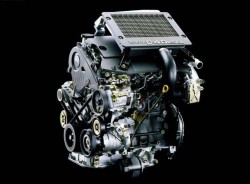
Toyota 2.0 D-4D engine
The biggest problem of the 2,0 D4D (1 / 2CD-FTV) diesel engine is the costly repair of the injection system, the injectors being short-lived.
The 2.0 D - 4D engine is one of the most popular Toyota diesel engines produced in the last decade. Debuted at Avensis 1999. With 110 hp. A few months later, it appeared in a 90 hp version of the Corolla, remaining on offer until 2004, when it was replaced by a new diesel 1.4 D 4D of the same strength.
The 110hp engine first appeared in 2001 in the second generation RAV4 , and later came under the guise of other company models. But the biggest change came in early 2006. When the new 2.0hp 4 D-126D diesel engine was introduced.
The D4D diesel designation is characteristic of Toyota diesel engines with a common rail injection system. The manufacturer of the injection system is Denso, the injectors with this engine are not durable. Most injector failures occurred in cars with a 116 hp diesel engine, manufactured from 2003 to 2004 (piezo injectors).
Another well-known problem of the 2.0 D-4D diesel is the failure of the flywheel, more often with heavier models like the Avensis and the RAV4. This problematic element is not encountered by the 90-hp Corolli. Symptoms of floating flywheel damage are: noise near the clutch and engine vibration.
The increased number of turbine failures is characteristic of the Avensis Verso and RAV4, which have a different turbine than other models; the problem with the turbine is also the 116 hp Corolla (first year of production).
In the case of an EGR valve problem, a thorough cleaning is usually helpful. Replacement is required when the EGR valve electrical control fails. EGR valve failure symptoms are power loss.
Starting problem in winter, the problem was attempted to be solved with new ECU engine software.
Leaking an SCV valve is a known problem with Toyota. Valve leakage causes the engine to suddenly shut down.
Toyota 2.0 D-4D (1 / 2CD-FTV)
| Version | 1CD-FTV - 90 | 1CD-FTV - 110 | 2CD-FTV - 116 |
| Injection | Common rail | Common rail | Common rail |
| Engine displacement | 1995 cm3 | 1995 cm3 | 1995 cm3 |
| Number cylinders / valves |
R4 / 16 | R4 / 16 | R4 / 16 |
| Engine power Hp / rev. in min |
90/4000 | 110/4000 | 116/4000 |
| Max. craft torque / rpm |
215 Nm / 2400 | 250 Nm / 2000 | 250 Nm / 1800 |
Models with 2.0 D-4D engine
- Toyota Corolla E11: 09.2000-11.2001
- Toyota Corolla E12: 01.2002-02.2007
- Toyota Avensis I: 10.1999-02.2003
- Toyota Avensis II: 04.2003-03.2006
- Toyota RAV4 II: 09.2001-11.2005
- Toyota Corolla Verso: 01.2002-05.2004
- Toyota Previa II: 03.2001-01.2006
Toyota 2.0 D-4D (1 / 2CD-FTV)
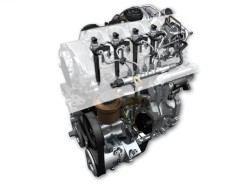
Toyota 2.0 D-4D engine
The most popular use of the engine of this series is the Avensis II after the restyling. Depending on the age, the Avensis II has different engines - 1CD-FTV in 2003-2006 and 1AD / 2AD-FTV in the period 2006-2008.
Toyota has developed the diesel AD completely from scratch, the engine has an aluminum block. Common rail injection system, as in the previous engine, DENSO injectors - a big advantage is greater durability (over 250000 km). We point out that the latest generations of engines already use piezo injectors - they cannot be repaired.
Since 2008, all AD engines have a particulate filter.
A large number of AD series engines manufactured by 2009 had problems with erosion of the engine block at the junction with the engine head. Since 2009, the problem has been resolved. Engine block erosion occurs due to the coolant reacting with the aluminum engine block. The fault is detected from 100000 to 180000 km depending on the ride. The coolant begins to dissolve the oil. Repairs may only be carried out by machining the top of the engine block, but only once may the engine block be machined to prevent piston and valve collisions. Many cars (mainly Avensis II) have the engine repaired or replaced under warranty.
Collecting engine garages, AD series engines tend to accumulate a large amount of soot in the intake manifold. It helps with cleaning.
Floating Flywheel Problems.
Toyota 2.0 / 2.2 D-4D
| Version | 1AD-FTV - 124 | 1AD-FTV - 126 |
| Injection | Common rail | Common rail |
| Engine displacement | 1995 cm3 | 1995 cm3 |
| Number cylinders / valves |
R4 / 16 | R4 / 16 |
| Engine power Hp / rev. in min |
124 / 4000 | 126 / 4000 |
| Max. craft torque / rev. in min. |
310 Nm / 1600-2400 |
300 Nm / 1800-2400 |
Recommendation of similar texts:

Hi there, I am Mladen and I am an auto enthusiast. I started this blog years ago to help like minded people share information about latest cars, car servicing ideas, used car info, exotic cars, and auto technology. You will find helpful articles and videos on a wide variety of cars - Audi, Mercedes, Toyota, Porsche, Volvo, BMW and much more. Ping us if you have anything cool to share on latest cars or on how to make older cars more efficient, or just want to say hi!

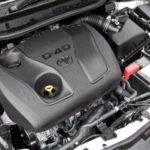

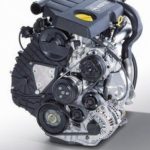
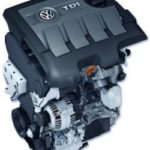
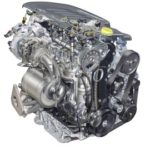
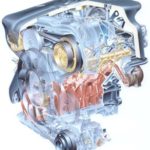
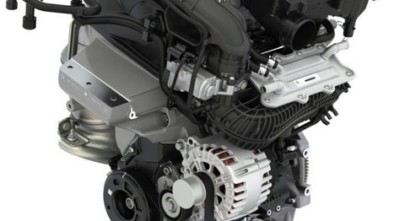

please do Toyota avensis verso d4d 2,0, 85kw / 116hp 2003. has a flywheel?
The biggest problem of the 2,0 D4D (1 / 2CD-FTV) diesel engine is the costly repair of the injection system, the injectors are short-lived. ???? I have a Toyota Avensis I: 10.1999-02.2003 half a million km and I have never touched the injection system the only thing that broke down is the MAF sensor! regularly changing the oil and filters sometimes i insert the additive and sometimes highway highway exhaust! otherwise I drive another factory water pump at that km
Hello friends, I need advice about Toyota, it's about the Avensis 2002 2.0 d4d 81kw, does it have a swimmer and what services did you do and where because I plan to buy it these days from a man and I've heard all sorts of nonsense. Since 2002 is important to me to know about swimming whether there is or not because it is the most expensive item if something is wrong and the rest is part of regular maintenance.
Thanks in advance greetings
It's a Toyota corola verso 2006 139 kw 2.2 diesel, it starts a bit like it jerks at higher speeds and when I give more throttle a loud dull sound, and when it's on cruise control it doesn't matter if it's up to the nozzle